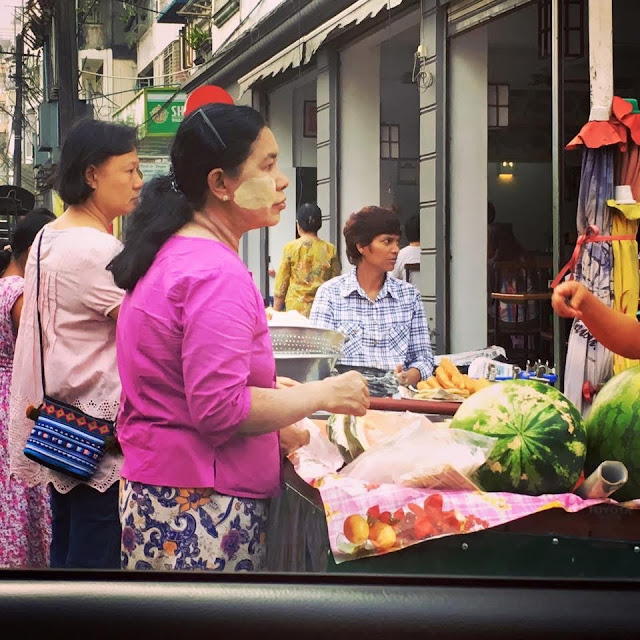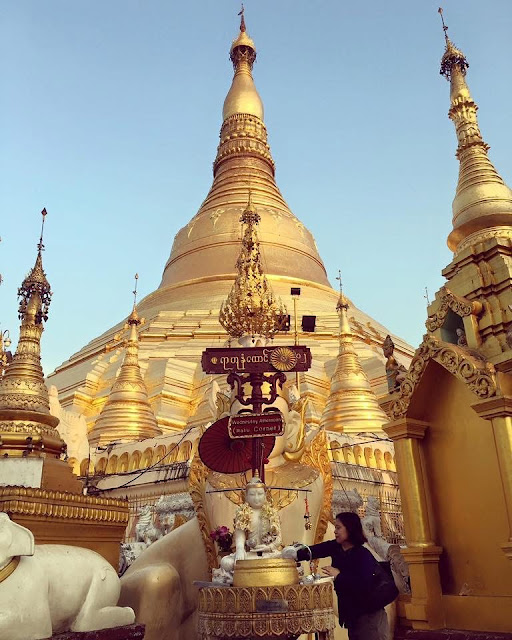Discovering the Soul of Myanmar: My Cultural Journey Through Yangon
If you're looking to immerse yourself in a destination that transcends modern definitions of beauty, Myanmar deserves a spot on your travel list. Far beyond the reach of mass tourism, Myanmar remains raw, deeply cultural, and astonishingly kind. During my visit to Yangon, I experienced a country where simplicity reigns, traditions flourish, and a deep spiritual rhythm guides everyday life.
Here's why exploring Myanmar through its culture is the best way to understand its soul.
Yangon: Where Time Slows and Culture Deepens
Yangon, the former capital of Myanmar, is often described as chaotic - but to me, it was peacefully unpolished. Life here doesn't race forward; it flows. The people radiate warmth and hospitality that's genuine and unassuming.
The richness of Myanmar isn't measured by skyscrapers or luxury malls. It's in the rhythm of daily rituals, the colorful garments worn with pride, and the golden shimmer of pagodas at dawn.
Cultural Encounters: Longyi, Thanaka and Daily Grace
Two things immediately caught my attention in Yangon: the Longyi and Thanaka. The Longyi, a traditional sarong-like garment is worn by both men and women. Men tie it in front, while women knot theirs at the side. It's more than just clothing; it's a visible tie to heritage and modesty in a world that's rapidly globalizing.
Then there's Thanaka, a yellowish-white paste applied to the face, made from ground tree bark. Used as sun protection, a skin refresher, and even a cosmetic, Thanaka is not just functional - it's symbolic. It's common to see people of all ages with beautifully patterned Thanaka across their cheeks, wearing it with as much pride as a badge of identity.
A Culinary Introduction: Burmese Flavors in Every Bite
One of the most enjoyable ways to connect with a culture is through its cuisine - and Burmese food is a symphony of flavors. My first lunch in Yangon was at the House of Memories, a restaurant with a powerful historical legacy as the former office of General Aung San, a key figure in Myanmar's independence.
Some of the must have dishes in Myanmar: Mohinga, often hailed as the country's unofficial national dish. A flavorful rice noodle soup with fish broth, it's simple yet deeply comforting. Another unforgettable taste was Laphet Thoke, a salad made with fermented tea leaves. It's their version of Korea's Kimchi - fermented, flavorful and a staple on most dining tables.
Burmese cuisine isn't known for overpowering spices. Instead, it delights the senses with texture, aroma, and subtle depth. Dishes often highlight seafood and legumes, blending them into something unexpectedly bold, yet never heavy. It's a foodscape that respects balance and texture more than just heat or fire.
The Shwedagon Pagoda: A Sacred, Soulful Moment
No visit to Yangon is complete without stepping into the sacred grounds of Shwedagon Pagoda. It was here where I had one of the most deeply spiritual experiences of my travel. Towering over the city and glimmering in gold, the pagoda is not just a monument - it's a place where energy shifts.
The atmosphere is reverent, almost mystical. I found myself drawn into the quiet rhythm of devotees praying, the scent of incense in the air, and the warm glow of candlelight. Describing the feeling is difficult - but it awakened a sense of inner calm and deeper spiritual awareness. Compared to temples I've seen in Thailand or elsewhere in Southeast Asia, the Shwedagon has a gravity and emotional resonance that's incomparable.
Myanmar has faced its share of challenges in recent years, and it's impossible to visit without acknowledging that reality. But beyond the headlines lies a country full of soul, resilience, and cultural wealth waiting to be experienced. I left Yangon with a profound sense of gratitude - not just for the beauty I witnessed, but for the kindness of its people and the spiritual depth I found in its traditions.
Travel Tips for Visiting Myanmar
- Dress modestly: Long skirts or trousers and covered shoulders are recommended, especially when visiting pagodas.
- Respect customs: Remove shoes before entering religious sites.
- Try the tea leaf salad and mohinga: They are unique to Myanmar and reflect its cultural palate.
- Be present: The charm of Myanmar lies in slowing down and soaking in the everyday beauty.
























0 comments